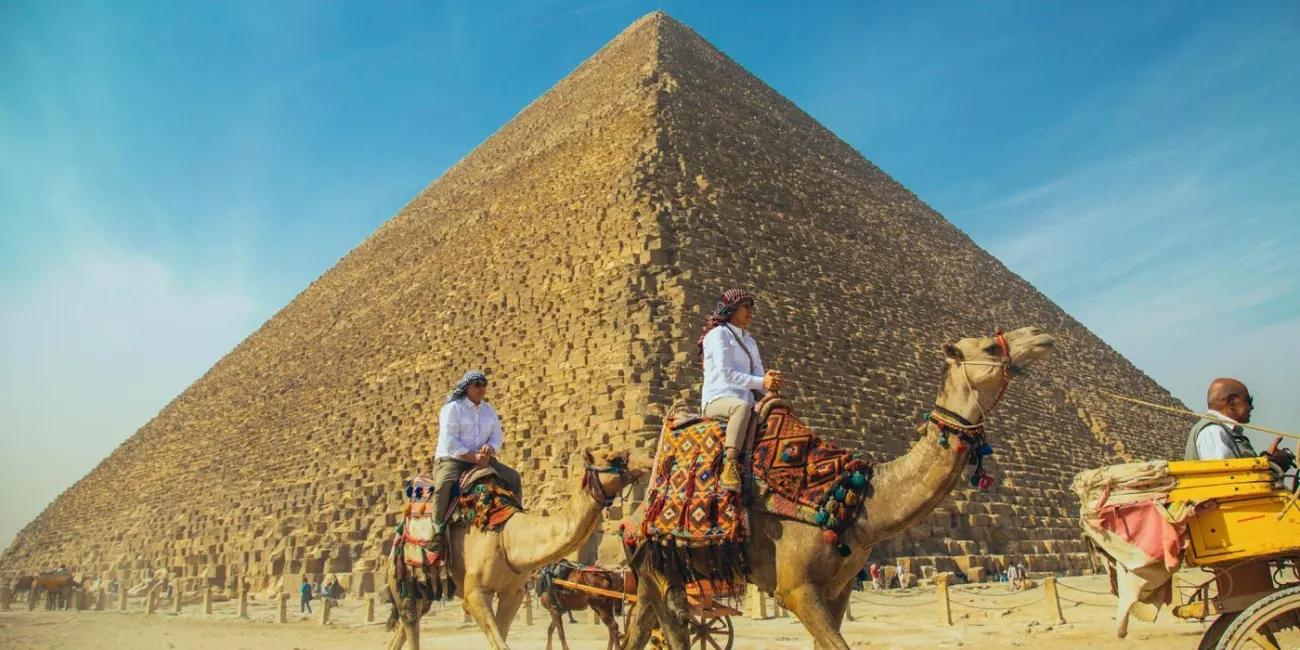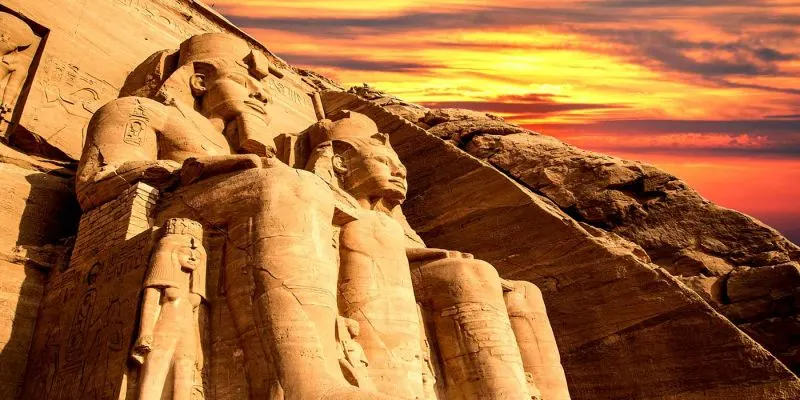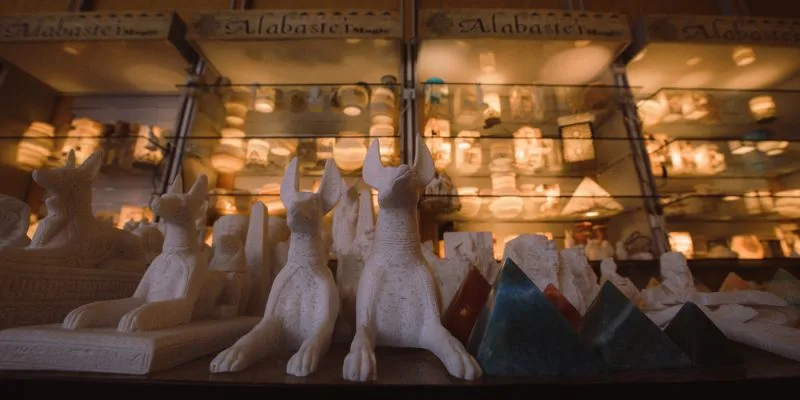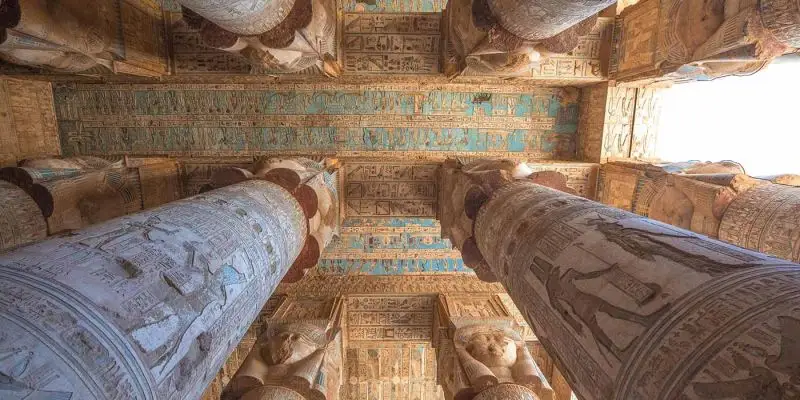Safety and Security in Egypt

Safety in Egypt reflects a complex picture shaped by regional differences and evolving conditions. While the U.S. State Department maintains a Level 3 “Reconsider Travel” advisory (as of October 2024), terrorism incidents have significantly declined since 2018, with Cairo’s last major attack in 2019. Political stability has grown under President Abdel-Fattah el-Sisi, though economic pressures—such as high inflation and currency devaluation—continue to influence the security environment. Safety varies across regions, making local knowledge and preparation important for travelers.
Understanding Safety and Security in Egypt
Crime rates in urban and rural areas
Egypt’s Safety Profile (2023) scored 55.7 on the global safety index, reflecting moderate security. Crime rates remain generally low, though economic pressures since 2011 have influenced trends. Reported incidents include personal theft (5.3%), burglary (2.1%), and vehicle-related crimes such as theft (8.3%) and vandalism (4.6%). Consumer fraud (32.4%) and corruption (17.7%) affect larger segments of the population. Urban crime is mainly linked to financial necessity (14.7%) and social influences (8.8%), while rural are
as show higher rates of verbal conflict (21.3%) and economic-driven offenses (14.1%)
Terrorism threats and government response
Egypt’s counterterrorism efforts have significantly improved since 2018, with major attacks in Cairo ceasing after 2019. Current threats remain localized to North Sinai and parts of the Western Desert near Libya. The government has invested heavily in security and development—allocating $224 million to North Sinai programs—while tourist sites operate under strict protection measures. International cooperation, particularly with the United States, provides advanced training, equipment, and operational support to Egyptian security forces.
Political stability and its impact on tourism
El-Sisi’s 2023 reelection with 89.6% ensured political stability through 2029, though economic challenges remain, including projected 21.9% inflation in 2025 and a currency devaluation of over 200% Since 2022. Tourism, once 5% of GDP before 2010, dropped to 1.1% by 2016 due to unrest. The 2015–2016 Russian plane crash severely impacted arrivals, cutting Russian visitors from 3.14 million in 2014 to just 53,000 by 2016

Safety by Region: Where to Go and What to Avoid
Egypt's geographical tapestry reveals distinct security patterns that shift dramatically from one region to another. Understanding these regional variations becomes essential for any traveler seeking to explore this land where ancient monuments coexist with modern realities on an Egypt tour.
Cairo and Alexandria: Urban safety tips
Cairo generally provides a secure environment, especially in major tourist zones like the Pyramids, Sphinx, and Khan El Khalili, where security is highly visible. While pickpocketing is rare, vigilance is advised in crowded areas. Safe transport options include the metro and ride-sharing apps such as Uber. Alexandria mirrors this security profile within central districts but carries a more conservative atmosphere. Travelers should exercise caution in outlying neighborhoods and dress modestly to respect local customs.
South Sinai vs. North Sinai: A stark contrast
South Sinai, home to resorts like Sharm El-Sheikh and Dahab, remains a secure destination with strong protective measures that allow tourism to operate without major disruption. In contrast, North Sinai continues to face Egypt’s most severe security challenges, marked by ongoing conflicts, strict emergency protocols, and universal international travel warnings
Western Desert and border zones
Egypt’s desert regions pose unique safety challenges, especially along the Libya border where access is restricted within 50 km due to military operations. Remote areas remain risky because of isolation and limited emergency support. Desert tourism—covering Bahariya, Farafra, the White Desert, and Black Desert—requires advance permits and certified guides, ensuring safety where communication and medical services are scarce
Nile Valley: Luxor, Aswan, and surrounding areas
Luxor and Aswan are among Egypt’s safest destinations, with strong police presence safeguarding major archaeological sites like the Valley of the Kings and Luxor’s temples. Aswan offers a similarly secure setting enriched by Nubian culture and scenic Nile views. Security concerns are minimal, with the main challenges coming from persistent vendors or unofficial guides, usually managed by a polite refusal (“la shukran”)

Health and Travel Precautions
Medical preparedness forms a cornerstone of successful Egyptian exploration, extending far beyond basic security considerations. Travelers who approach health planning with thoroughness discover that proper preparation opens doors to worry-free adventures across this remarkable destination.
Common illnesses and how to avoid them
Egypt poses health risks such as bacterial diarrhea, typhoid, hepatitis A, and schistosomiasis. Travelers should avoid tap water, eat only hot cooked food, and be cautious with raw vegetables unless from trusted sources. Freshwater contact, including the Nile and canals, should be avoided to prevent schistosomiasis, while saltwater, pools, and the sea are generally safe.
Vaccinations and medical preparedness
Vaccination protocols for Egypt require advance planning and medical consultation. The CDC establishes clear guidelines recommending hepatitis A, typhoid, and COVID-19 immunizations. Recent poliovirus identification within Egyptian borders necessitates current polio vaccination status. Travelers arriving from yellow fever endemic regions face mandatory vaccination documentation requirements.
Essential routine immunizations include:
- Measles-Mumps-Rubella (MMR)
- Tetanus-Diphtheria-Pertussis
- Influenza
- COVID-19
Medical consultation should occur at minimum one month prior to departure, allowing adequate time for vaccination schedules and any necessary medications.
Access to hospitals and emergency care
Egypt’s healthcare system shows significant disparities between metropolitan centers and remote regions, with emergency care facilities scarce nationwide and nearly absent in isolated areas. The physician-to-population ratio is around 1.19 per 1,000 residents, while ambulance services (via 123) often face unreliable response times and lack advanced equipment. In the tourism sector, regulations require major hotels to maintain onsite medical clinics staffed by resident physicians. Cairo is home to several high-quality private medical facilities, in contrast to public hospitals that frequently struggle with supply shortages.
Why travel insurance is essential
Travel insurance is not mandatory for entry into Egypt, but both U.S. and Egyptian authorities strongly recommend it due to limited international coverage from U.S. healthcare policies. Experts advise at least $50,000 for medical expenses and $100,000 for evacuation, as evacuation costs can be extremely high, especially in remote areas. Comprehensive travel insurance also usually includes trip cancellation, interruption, and luggage protection at little extra cost.

Customize Your Dream Vacation!
Get in touch with our local experts for an unforgettable journey.
Plan Your Trip
Practical Safety Tips from a Local Guide
Successfully navigating Egypt requires more than basic awareness; it depends on understanding local culture and practical wisdom gained from residents and experienced travelers, helping visitors explore the country with confidence and respect.
How to dress and behave respectfully
Modesty serves as your passport to authentic Egyptian experiences. Women find success wearing clothing that covers shoulders, knees, and chest, while men discover that shorts remain inappropriate for religious sites and formal encounters. Cotton and linen garments offer ideal solutions for Egypt's climate, providing both comfort and cultural appropriateness. Mosque visits require headscarves for women and shoe removal for all visitors. Public displays of affection beyond hand-holding tend to attract unwanted attention, even within tourist districts.
Using local transportation safely
Modern ride-sharing applications like Uber and Careem have revolutionized urban transportation, offering transparent pricing and trackable routes. Cairo's metro system features women-only cars, easily identified by pink platform signs, providing female travelers with comfortable alternatives. Traditional white taxis remain viable options when fare agreements precede departure. Long-distance travel favors first-class trains over crowded buses, delivering superior security and comfort for intercity journeys.
Avoiding scams and tourist traps
At Egyptian tourist sites, common scams include false claims of “special access,” inflated camel ride costs, unofficial guides, and hidden restaurant prices. To avoid issues, agree on prices in advance and politely decline unsolicited offers with “la shukran.”
Best times and places to travel
Egypt's temperature spectrum ranges from 14°C to 37°C annually. Summer months bring intense heat, while winter offers mild conditions with cooler evenings. Spring and autumn provide optimal sightseeing weather with reduced tourist density. Coastal regions maintain moderate temperatures throughout the year. Daily planning benefits from early morning and late afternoon activities, particularly beneficial for Upper Egypt and desert explorations where midday sun becomes overwhelming.
Safety tips for solo and women travelers
Female travelers, especially those journeying alone, benefit from heightened situational awareness. Conservative dress minimizes unwanted attention, while carrying additional scarves provides flexibility for various situations. Darkness brings increased risks for solitary walking, making these precautions valuable:
- Utilize women-only metro cars throughout Cairo
- Secure accommodations and transportation before arrival rather than arranging spontaneously
- Create vocal disturbances when genuinely threatened—loud objections typically summon helpful bystanders
- Restrict personal information sharing with unknown individuals
- Consider women-friendly tour groups for enhanced security
Tourist police assistance remains available at 126 (residents can dial 122) when circumstances require intervention. While harassment incidents occasionally occur, violent crimes against tourists remain statistically uncommon.
Yes, Egypt is generally safe for tourists, especially in popular destinations like Cairo, Luxor, Aswan, Hurghada, and Sharm El Sheikh. You’ll notice a strong security presence around major attractions such as the Pyramids of Giza, the Valley of the Kings, and the Egyptian Museum. Millions of travelers visit Egypt every year without issues. That said, you should stay alert in crowded areas, avoid isolated spots at night, and consider guided tours for a more relaxed and secure experience.
When you travel to Egypt, modest clothing is highly recommended to respect local culture and avoid unwanted attention. For women, covering shoulders and knees is advisable, while men should avoid shorts in mosques or other religious sites. Lightweight, loose-fitting clothes made from cotton or linen will keep you comfortable in Egypt’s warm climate, whether you’re exploring Cairo’s bustling streets, wandering Luxor’s temples, or sailing on a Nile cruise.
Like many tourist destinations, Egypt has its share of pushy vendors and overpricing. To avoid scams, always agree on taxi fares or tour prices in advance. If someone offers you an unsolicited "free" service near the Pyramids, bazaars, or Nile cruise docks, it’s best to politely decline. A simple “la shukran” (no thank you) in Arabic goes a long way. Keep your valuables secure in crowded places like Khan El Khalili Bazaar in Cairo, and joining a trusted Egypt tour package can help minimize hassle.
Egypt is so much more than the Pyramids of Giza. If you want to dive deeper into history and culture, visit Luxor for the Valley of the Kings and Karnak Temple, Aswan for Nubian villages and Philae Temple, and Alexandria for its Mediterranean charm. If you’re a beach lover, the Red Sea Riviera (Hurghada and Sharm El Sheikh) offers world-class diving and relaxation. A Nile cruise between Luxor and Aswan is also one of the best ways to experience Egypt’s ancient wonders up close.
Before your Egypt trip, consult your doctor about vaccinations such as hepatitis A and typhoid. Don’t drink tap water—bottled water is widely available. Be cautious with street food, salads, and ice. Travel insurance with medical coverage is essential, especially if you plan to visit remote areas like the White Desert or Siwa Oasis. In cities like Cairo and Luxor, hospitals and clinics are accessible, but rural areas may have limited facilities.












